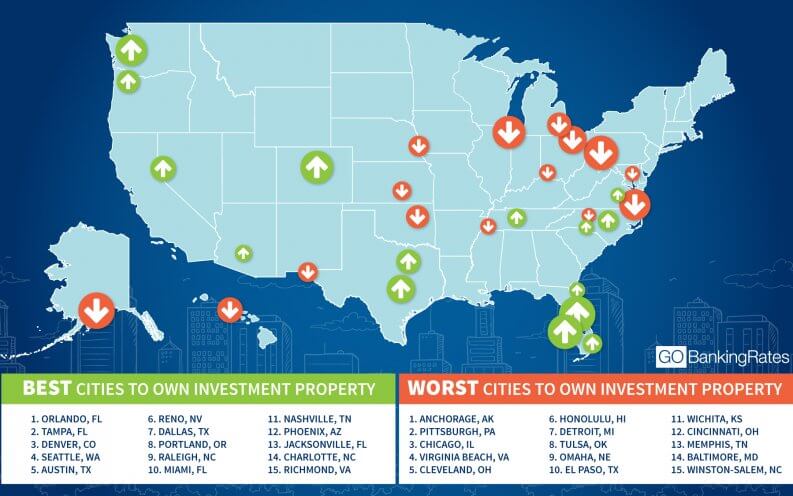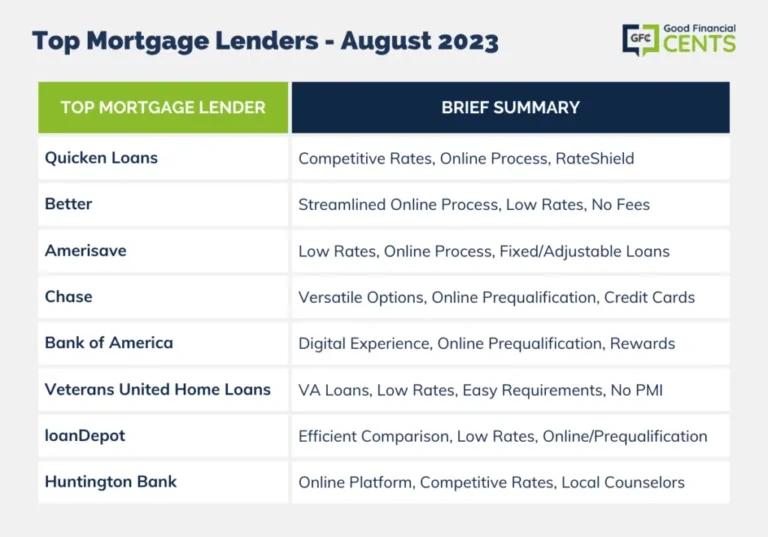Best Cities For Real Estate Investment
Over the past decade, experts have noted a significant surge in real estate markets in unexpected global corners. For instance, cities like Austin, Texas have outperformed traditional powerhouses with a staggering 9% annual home price increase. This shift is reshaping investment portfolios and capturing the imagination of savvy investors worldwide.
When evaluating the best cities for real estate investment, economic growth, quality of life, and robust infrastructure are often at the forefront. Case in point: Berlin has become a hotspot due to its vibrant tech scene and relatively lower entry prices compared to Western counterparts. Moreover, a market report highlights that Berlin’s property values have climbed by 12% annually, offering promising returns not to be overlooked.
- Austin, Texas: Known for tech growth and strong housing demand.
- Berlin, Germany: Offers affordable entry prices with cultural appeal.
- Toronto, Canada: Features stable economy and diverse population.
- Lisbon, Portugal: Attractive due to tourism and tax incentives.
- Sydney, Australia: Boasts robust market and quality lifestyle offerings.

Best Cities for Real Estate Investment
Austin, Texas, has become a real estate hotspot with its booming tech industry. The city’s population is growing rapidly, and houses here are selling fast. People love Austin for its vibrant music scene and friendly atmosphere. Plus, the job market is strong, which attracts more buyers. These factors make Austin a top pick for investors looking to make smart moves.
Another great city for investment is Berlin, Germany. Known for its rich history and cultural appeal, Berlin offers lower entry prices compared to other European cities. The tech industry is also thriving here, creating more job opportunities. As a result, property values are steadily climbing. Investing in Berlin now could lead to promising returns in the future.
- Austin’s real estate demand is high due to a growing tech hub.
- Berlin remains attractive with its blend of culture and tech opportunities.
- Both cities offer a mix of affordability and growth potential, drawing investor interest.
Investors also consider factors like market stability and rental yields when choosing cities. The key is finding a balance between potential risks and rewards. Many emerging cities are catching the eye of savvy investors. The future might hold even more exciting prospects for those ready to invest wisely. Exploring various options keeps the game exciting and profitable.
Austin, Texas: A Growing Powerhouse
Austin’s tech industry is booming, making it a prime spot for real estate investment. Companies like Apple, Google, and Tesla are setting up offices here, bringing in high-paying jobs. This influx of jobs is driving up demand for housing. Home prices have increased significantly over the past few years. This growth makes Austin an attractive option for investors.
The city’s population is also on the rise. Many people are moving to Austin for its vibrant lifestyle and ample job opportunities. The city’s music scene, outdoor activities, and cultural events add to its appeal. With more people moving in, real estate values are climbing. This trend shows no signs of slowing down anytime soon.
- Tech industry growth
- Increasing population
- Vibrant lifestyle and events
- Rising real estate values
- High-paying job opportunities
Rental yields in Austin are also strong. Investors can expect good returns from rental properties due to the high demand for housing. The city’s infrastructure is improving, making it even more attractive for new residents. New developments and public projects are enhancing the quality of life. This combination of factors makes Austin a top choice for real estate investment.
Berlin, Germany: A Tech and Culture Hub
Berlin stands out as a dynamic city where technology and culture come together beautifully. The city’s tech industry is flourishing, attracting startups and established companies alike. This steady influx creates a robust job market. The cultural scene is just as lively, offering a unique blend of history, art, and music. As these industries grow, Berlin’s real estate market becomes increasingly appealing to investors.
The cost of living in Berlin is still relatively affordable compared to other European capitals. This affordability attracts a diverse population of creatives, tech enthusiasts, and young professionals. It’s a city where old meets new, both culturally and architecturally. Beautiful historic buildings share the skyline with modern tech parks. This mix of influences keeps Berlin’s atmosphere fresh and exciting.
- Thriving tech industry
- Rich cultural scene
- Diverse and vibrant population
- A blend of historic and modern architecture
- Continued real estate growth
In addition to its tech and cultural appeal, the city enjoys a strategic location in Europe. Excellent transportation links connect Berlin to major cities, enhancing its business prospects. With continuous development, the infrastructure supports the city’s growing needs. Investors see this as a recipe for future growth and stability. It’s why Berlin remains a top choice for real estate projects.
Factors Driving Real Estate Investment in Cities
One major factor that drives real estate investment in cities is population growth. As more people move to urban areas for job opportunities or lifestyle choices, housing demand increases. This demand can lead to higher property values, making cities attractive to investors. Urban centers often provide more amenities like public transport, schools, and healthcare. These conveniences add to the appeal of city living.
Economic stability is another crucial factor for real estate investment. Cities with strong local economies tend to attract more businesses and workers. This economic vibrancy can lead to rising property values. Investors are likely to see better returns in areas where jobs are plentiful and wages are competitive. A stable job market encourages people to settle and invest in homes.
Infrastructure development also plays a significant role. Cities that invest in better roads, public transport, and utilities become more livable. Improved infrastructure can draw people away from rural areas to enjoy city conveniences. New projects can boost property values by making neighborhoods more accessible and appealing. Infrastructure investment signals growth, which interests real estate investors.
The cultural scene of a city can impact real estate investment too. Cities with vibrant arts, music, and food scenes often draw a diverse crowd. This diversity creates a unique living environment. People attracted to culture-rich cities may be willing to pay more for housing. Real estate investors can benefit by tapping into these cultural hotspots.
- Population growth impacts demand for housing.
- Strong local economies attract businesses and workforce.
- Infrastructure improvements enhance city appeal.
- Cultural attractions draw diverse populations.
Benefits and Risks of Investing in Real Estate in Emerging Cities
Investing in real estate in emerging cities offers a range of benefits. One of the main advantages is the potential for significant property value appreciation. As these cities grow economically, the demand for housing increases. This growth can lead to rapid increases in property prices. Early investors often see a high return on their initial investments.
Another benefit is the relatively lower cost of entry. In established cities, entry prices can be prohibitive for some investors. Emerging cities typically offer more affordable options. This affordability can attract a broader range of investors. As infrastructure and population grow in these areas, so do property values.
However, there are also risks associated with investing in emerging cities. Economic instability can pose a challenge. If a city’s economy doesn’t develop as expected, property values might stagnate or even fall. Political changes or lack of local government support can also have negative impacts on investment. It’s essential for investors to research thoroughly before committing to investments in these areas.
Developing infrastructure can be both a benefit and a risk. On one hand, new infrastructure projects can increase property values significantly. On the other, if projects are delayed or canceled, anticipated growth might not materialize. Investors should stay informed about regional development plans. Balanced decisions come from understanding both the potential and the pitfalls.
Future Trends in City Real Estate Investing
One major trend in real estate investing is the rise of smart cities. These cities use technology to improve living conditions and manage resources efficiently. Investors are keen on places implementing smart infrastructure and green technology. The integration of these technologies can boost property values. As more cities adopt smart tech, investments in this area are likely to grow.
Another emerging trend is the increased focus on sustainability. Many people are looking for eco-friendly buildings and communities. This demand drives developers to build sustainable housing with energy-efficient features. Cities that prioritize green initiatives may see a rise in real estate value. Investors are keeping an eye on cities committed to sustainability.
- Smart city technology adoption
- Focus on sustainability and eco-friendly developments
- Increased demand for affordable urban housing
- Technology-driven property management solutions
The demand for affordable housing in cities is also impacting real estate investment. As urban populations grow, the need for cost-effective housing solutions increases. Developers are exploring new models to provide affordable urban living. These developments can attract both residents and investors. Balancing affordability with profitability will be a key challenge.
Technology is changing how we manage properties, introducing innovative solutions like virtual tours and online property management. These tools make the investment process more accessible and efficient. They also appeal to tech-savvy investors looking for streamlined operations. Real estate platforms that embrace these technologies may gain an edge in the competitive market.
Frequently Asked Questions
Real estate investment can seem complex, but understanding key factors makes it manageable. Here are some common questions that can help you grasp the essentials of investing in cities around the world.
1. What factors determine a city’s real estate growth potential?
Several factors influence a city’s real estate growth, including economic stability, job opportunities, and infrastructure. Cities with strong job markets attract more people, increasing housing demand and elevating property values. Additionally, good transport networks and amenities boost a city’s appeal.
Governments investing in infrastructure projects also tend to attract real estate investors. These projects often improve connectivity and livability, making cities attractive for both residents and businesses. Understanding these elements can guide more informed investment decisions.
2. How does local culture impact real estate investments?
Culture plays a significant role in real estate investment as it affects a city’s identity and attraction. Vibrant cultural scenes, including arts, music, and history, draw individuals who value lifestyle and community connections. These influences can enhance property desirability and boost local markets.
Cities with active cultural events often experience increased tourism and temporary residency, leading to a rise in rental demand. Properties in culturally rich areas may see more value growth compared to less dynamic regions, making them appealing for long-term investments.
3. Is it riskier to invest in emerging cities compared to established ones?
Investing in emerging cities does come with its own set of risks, primarily due to economic uncertainty. While the potential for significant returns is higher, these areas may be more volatile. Markets can be unstable, and infrastructure might be lacking compared to mature cities.
However, with thorough research, investors can mitigate these risks. Monitoring economic growth indicators and infrastructure plans can provide insights into future investment potential. Emerging cities often offer more affordable entry points, attracting those willing to accept some level of risk for greater rewards.
4. What role does technology play in modern real estate markets?
Technology is revolutionizing the real estate industry by making property management and investment more accessible. Innovations like virtual tours and online platforms allow for easier property evaluation and transactions. These tools save time and broaden access to international markets.
Additionally, data analytics and smart home technology are enhancing how properties are valued and managed. Investors can make data-driven decisions, improving the accuracy of their predictions and optimizing profitability.
5. Can government policies affect real estate investment opportunities?
Government policies are crucial in shaping the real estate landscape. Tax incentives, zoning laws, and housing regulations can either attract or deter investors. For instance, tax breaks may stimulate investment, while strict regulations might limit potential growth.
Staying informed about policy changes and government initiatives helps investors adapt their strategies. Understanding how local laws impact investments can be key to unlocking profitable opportunities in the real estate market.
Final Thoughts on Real Estate Investment
Venturing into real estate investment, whether in established or emerging cities, offers unique challenges and opportunities. With meticulous research and strategic planning, investors can navigate market trends and potential risks effectively. Each city presents distinct factors that can either enhance or hinder investment success.
Real estate remains a dynamic and evolving field, requiring adaptability and insight. As cities continue to grow and transform, the importance of staying informed cannot be overstated. Investors who embrace change and remain open to new possibilities are well-positioned to achieve long-term success.


